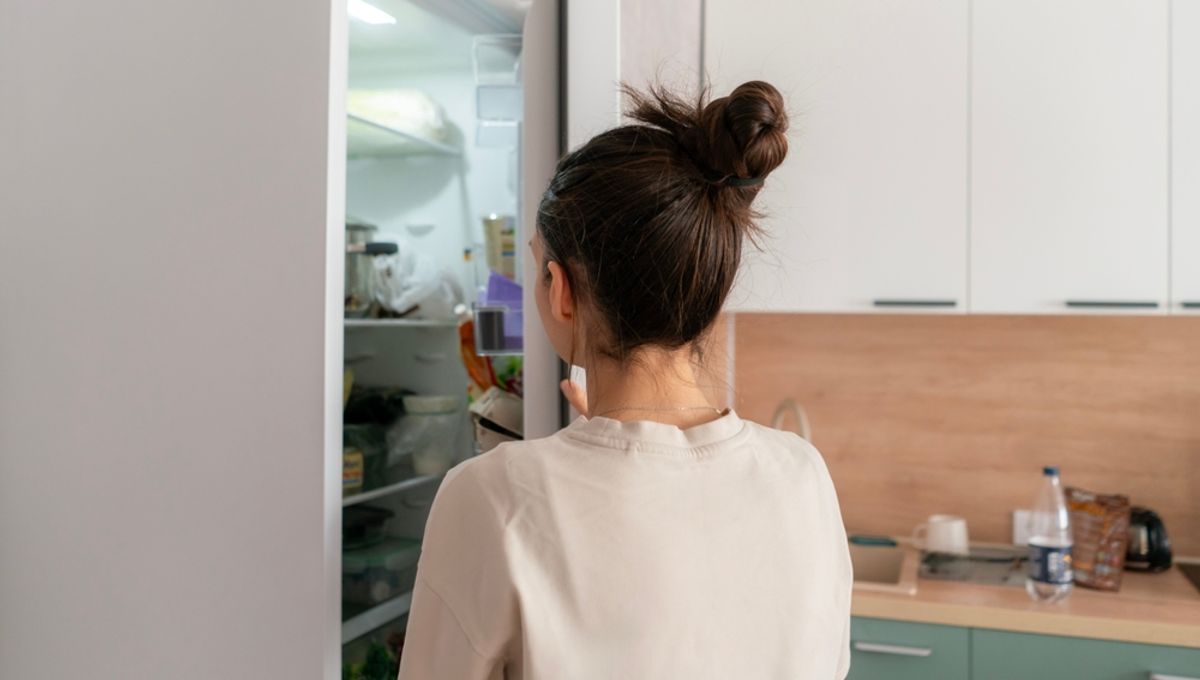
Fridges are kind of a triumph of design. There are shelves; there are crisper drawers; there are little spaces for individual eggs; a light that comes on only when you open the door and, if you’re feeling fancy, even an ice machine.
But not everything about your fridge is so well thought-out. The shelves inside the doors, for example, are perfectly presented as a place to store butter, milk, and eggs – and yet, according to experts, pretty much the worst place in the whole gaff to put them.
“Every time you open your fridge, warm air rushes in, and the door shelves are the first place that air hits,” Kathleen Benson, a registered dietitian nutritionist at VNutrition, told Reader’s Digest earlier this week.
But it’s not just that the temperature is higher, she explained – rather, it’s the fluctuations in heat and cooling that’s the real problem. “This repeated warming and cooling can cause butter to soften and firm up over and over again,” Benson said, “which speeds up spoilage and rancidity.”
Similarly, it’s a bad idea to keep milk, eggs, raw meat, seafood, soft cheese, and leftovers in the fridge door. “Milk, eggs, and other dairy products are highly sensitive to temperature changes, which can cause them to spoil faster,” food blogger and recipe developer Jecca Chantilly told Homes and Gardens in 2023.
So, if not the door, then where? “These products should be stored towards the back of the bottom shelf, which is generally the coldest part of the fridge,” Chantilly advised. “The back of the bottom shelf retains the most consistent temperature, making it ideal for items that are sensitive to temperature changes.”
On the other hand, if you’ve got leftovers to keep cool, opt for the top shelf. For that, there’s a very practical reason: “While the temperatures at the top shelf are not as cold as the bottom shelf of the fridge,” Chantilly said, “it is the most ideal place to prevent potential contamination from other ingredients that may drip down from above.”
But what of the flipside to the question? After all, if our eggs and dairy aren’t taking up space in the door, then what should we be doing with all this free real estate? Well, on this the experts are agreed: “The door is best for foods that are less temperature-sensitive, such as condiments, pickles, jams and bottled drinks,” said Benson.
A word of warning yet again, however: even here, you should be careful. While we’ve so far advised against storing things in the door that could spoil and cause illness, that’s not the only way keeping something in your fridge door could end up harming you.
“Smaller glass jars and bottles may be okay when squashed in and held in place with other items,” said Millie Hurst, Solved section editor for Homes & Gardens. “But it is best not to take the risk of one falling and shattering on your kitchen floor.”
“Anything stored in the fridge door should, ideally, be bottom-heavy, to prevent toppling and sliding,” Hurst advised – because while pickles in the door may not spoil, you’re still out a sandwich filling if they fall out and smash all over your feet.
Source Link: You Should Never Leave These Foods In Your Fridge Door (But We Bet You Do)